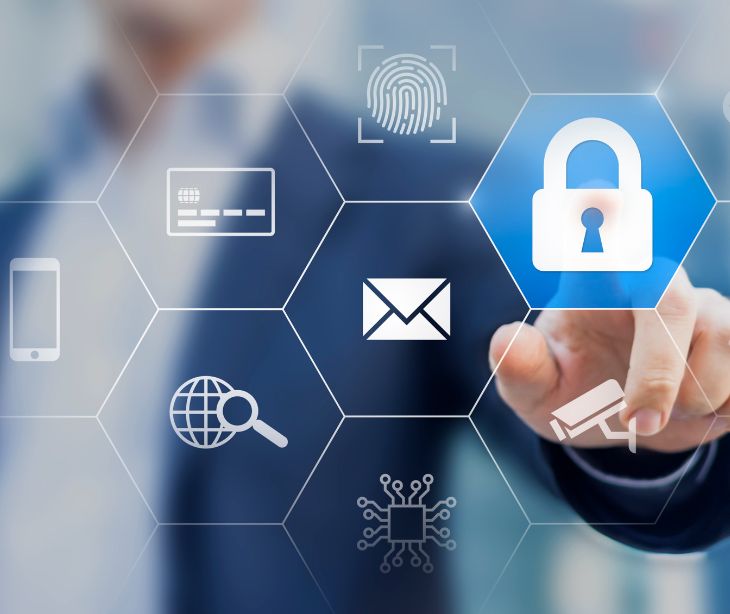
Cybersecurity is crucial to Health Insurance Portability and Accountability Act (HIPAA) compliance. However, HIPAA doesn’t explicitly mandate cybersecurity; it requires strong cybersecurity practices to ensure the protection and privacy of patient data.
Why does HIPAA mandate the implementation of cybersecurity measures?
HIPAA mandates cybersecurity as a fundamental component of its regulations to ensure the protection, privacy, and security of patients' sensitive health information. The following are some reasons why cybersecurity is included in HIPAA:
Protection of patient data
HIPAA's primary goal is to safeguard patients' protected health information (PHI) and electronic protected health information (ePHI) from unauthorized access, breaches, or theft. Cybersecurity measures are essential to prevent data breaches, ensuring patient information remains confidential and secure.
Evolving digital landscape
With the rapid advancement of technology in healthcare, including electronic health records (EHRs) and digital communication of patient data, the risk of cybersecurity threats has increased. Mandating cybersecurity measures ensures that healthcare entities keep up with evolving threats and technological advancements.
Legal and ethical obligations
Protecting patient privacy is both a legal requirement and an ethical responsibility. HIPAA sets a standard for healthcare organizations and professionals to uphold the confidentiality and integrity of patient information.
Prevention of data breaches
Cybersecurity measures, such as encryption, access controls, regular risk assessments, and staff training, help prevent data breaches. Breaches can result in financial losses, damage to an organization's reputation, and, most importantly, compromise patients' sensitive information.
Regulatory compliance
Failure to comply with HIPAA regulations can lead to severe penalties. Mandating cybersecurity measures ensures that covered entities adhere to these regulations, promoting accountability and minimizing non-compliance risk.
Related:
What is cybersecurity in healthcare?
HIPAA violations & enforcement
The Importance of Healthcare Cybersecurity
What role does cybersecurity play in meeting HIPAA requirements?
Risk assessment and management
HIPAA mandates regular risk assessments to identify potential vulnerabilities and risks to ePHI. Cybersecurity measures, such as penetration testing and vulnerability scans, are instrumental in assessing and developing strategies to mitigate these risks.
Data encryption
While HIPAA doesn’t mandate encryption, it strongly recommends it as an essential safeguard for protecting ePHI during transmission and storage. Implementing encryption measures is a widely accepted best practice to prevent unauthorized access.
Access controls
HIPAA requires covered entities to restrict access to ePHI to authorized personnel only. Cybersecurity measures like robust authentication protocols, role-based access controls (RBAC), and user activity monitoring aid in enforcing these access restrictions.
Incident response and reporting
HIPAA mandates prompt response and reporting in a data breach or security incident. Cybersecurity protocols that include incident response plans help covered entities contain breaches and adhere to reporting requirements.
Continuous monitoring and auditing
Ongoing monitoring of systems and regular audits ensure compliance. Cybersecurity tools facilitate constant surveillance, allowing organizations to proactively detect and address potential security gaps.
Subscribe to Paubox Weekly
Every Friday we'll bring you the most important news from Paubox. Our aim is to make you smarter, faster.




